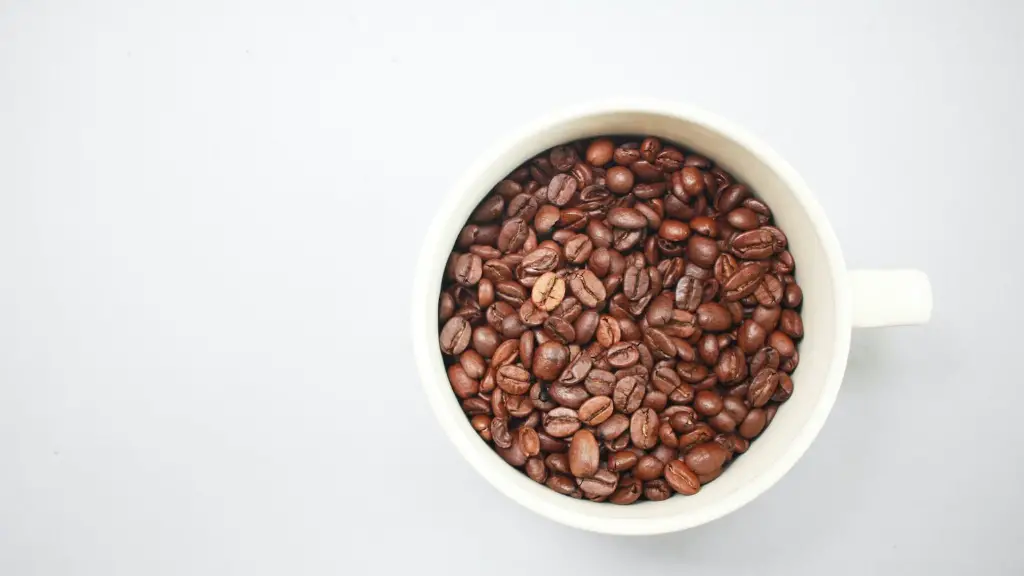Can Drinking Too Much Coffee Cause Constipation?
Coffee is one of the most popular beverages in the world, enjoyed by millions of people every day. Coffee is known to have a range of positive effects, including boosting energy levels, aiding concentration and improving mood. It also has potential health benefits, such as reducing the risk of diabetes and some cancers. However, some people are concerned that drinking too much coffee can lead to constipation.
Constipation is a common digestive disorder, and it is estimated that around 42 million Americans suffer from the condition. It is characterized by infrequent and difficult bowel movements, and can lead to a range of unpleasant symptoms including abdominal pain, bloating and fatigue. Some people are concerned that drinking too much coffee could make the condition worse.
What Does the Research Say?
Experts have been studying the effects of coffee on constipation for a number of years. The results of these studies have been inconclusive, with some suggesting that it could worsen the condition, and others suggesting that it has no effect.
One study from 2000 reported that people who drank more than four cups of coffee per day were more likely to suffer from constipation than those who drank less. However, the researchers did not account for other factors that might have contributed to the constipation, such as diet and lifestyle.
In contrast, other research suggests that coffee can actually help with constipation. In one study, caffeine was found to stimulate colonic motility and increase the frequency of bowel movements. In another study, coffee was found to reduce the time it took for food to move through the colon, which could help with constipation.
Overall, the evidence is mixed, and more studies are needed to determine the effects of coffee on constipation. In the meantime, it is advisable to limit consumption to moderate levels, particularly if you suffer from the condition.
What About Laxatives?
Many people use coffee as a natural laxative, believing it will help them to pass stools. However, this is not recommended, as it is not a suitable replacement for medical treatments. Coffee should not be used as a “quick fix” for constipation, and it can have detrimental effects if consumed in large quantities.
Coffee does contain caffeine, which is a diuretic. Studies have found that caffeine can stimulate the bowels, so it may help with occasional constipation. However, caffeine can also cause dehydration, which can worsen the condition. In addition, caffeine can cause other side effects such as headaches, insomnia and irritability.
In general, it is best to avoid using coffee as a laxative, as it can have potentially harmful side effects. If you experience persistent constipation, it is best to speak to a doctor to seek advice and treatment.
How to Avoid Constipation
The best way to avoid constipation is to ensure that you are drinking enough fluids, eating a balanced diet and getting regular exercise. These simple steps can help to keep your digestive system healthy and prevent the condition from developing.
It is also important to limit your caffeine intake. Coffee, tea and other caffeinated drinks can contribute to dehydration and trigger symptoms of dehydration, including constipation. If you experience persistent or severe constipation, it is best to limit your caffeine intake and seek advice from your doctor.
If you suffer from constipation, there are a number of lifestyle changes that you can make to help you manage the condition. These include increasing your intake of fiber, drinking plenty of water and exercising regularly. Taking steps to improve your digestive health and lifestyle can help to prevent and relieve the symptoms of constipation.
Coffee and Caffeine Alternatives
For those who are looking for an alternative to coffee and other caffeinated drinks, there are a number of options available. Herbal teas, such as ginger and chamomile, are a good choice as they can help to relax the body and promote digestive health. Decaffeinated coffee is also a good option, as it is free from the stimulant effects of caffeine.
Other alternatives include non-caffeinated beverages such as smoothies, juices and milkshakes. These can provide a welcome change from coffee and can be a great way to increase your fluid intake. You can also try hot chocolate for a sweet treat without the caffeine.
There are also a range of caffeine-free supplements and herbs that can help to improve digestive health and reduce constipation. These include dandelion root, psyllium husk, magnesium and probiotics. Speak to your doctor or a qualified nutritionist for advice on the best supplements for you.
Natural Home Remedies
If you experience occasional constipation, there are a number of natural home remedies that can help to relieve the symptoms. Prunes, for example, contain a natural laxative called sorbitol, which can help to stimulate the bowels and promote regularity. Other foods that can help to relieve constipation include bananas, apples and whole grain cereals.
It can also help to take warm baths or use a heating pad on the abdomen. This can help to relax the body and relieve the pain associated with constipation. Exercise can also be beneficial, as it helps to stimulate the digestive system and can encourage regular bowel movements.
Probiotics are also a good option, as they can help to restore the normal balance of bacteria in the intestines, which can help to improve digestion. Probiotic supplements are available in health food stores and online.
Conclusion
In conclusion, there is conflicting evidence on the effects of coffee on constipation. While some studies suggest that it could worsen the condition, others suggest that it has no effect. It is advisable to limit consumption to moderate levels, particularly if you suffer from constipation. Additionally, it is best to avoid using coffee as a laxative and seek advice from your doctor if you experience persistent or severe constipation.
If you suffer from constipation, there are a number of lifestyle changes that you can make to help you manage the condition. These include increasing your intake of fluid and fiber, eating a balanced diet and exercising regularly. Additionally, there are a number of natural home remedies and supplements that can help to relieve the symptoms of constipation.





